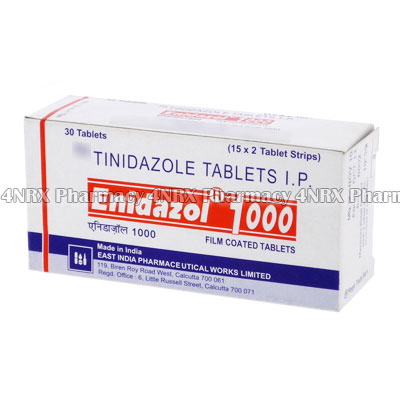 |
Home  Infection Infection  Enidazol (Tinidazole) Enidazol (Tinidazole) |
|
|||||||||
|
|
Enidazol (Tinidazole)
What is Enidazol (Tinidazole) used for? Enidazol (Tinidazole) is an oral antibiotic prescribed for the treatment of a large variety of bacterial infections. The medication slows or prevents the reproduction of bacteria cells allowing the immune system to control or eliminate the infection. This action makes it useful for treating infections of the sinuses, airways, soft tissues, middle ear, abdomen, blood, vagina, urinary tract, or may also help eliminate Helicobacter pylori bacteria from the stomach. Your doctor may also suggest the use of this medication for the treatment of other unlisted conditions. How should I use Enidazol (Tinidazole)? Enidazol (Tinidazole) is normally taken once each day at a dosage of one tablet for a cycle of medicine lasting up to one week. The best directions will be determined by your doctor based on your age, weight, health condition, the condition being treated, and the severity of your symptoms. These should be swallowed with a large glass of water and may be taken on an empty stomach, although a meal or snack is recommended before use if you experience nausea. Avoid crushing, splitting, or chewing the tablets prior to use to avoid destroying or altering the effects of their contents. Never stop taking your doses before being instructed to by your doctor, even if your symptoms have disappeared, as the infection may not be gone and can return stronger or more resistant to treatment. Ask your doctor any questions you have about the medicine to ensure the correct usage. What are the side effects of Enidazol (Tinidazole)? Enidazol (Tinidazole) may cause side effects in some patients including:
Serious side effects possibly requiring emergency medical attention are fever, flu symptoms, tingling sensations, numbness, or seizures. Tell your doctor as soon as any unusual symptoms occur to make sure the correct adjustments are made to your dosage or application frequency to prevent more health problems from occurring. Please Note Enidazol (Tinidazole) should not be administered by patients who are pregnant, breastfeeding, allergic to tinidazole, who have had a bad reaction to similar treatments in the past, or who have porphyrias, or nervous system disorders. Also disclose if you have other chronic health conditions that may cause unexpected complications during treatment requiring adjustments to your regimen. Strictly use Enidazol (Tinidazole) as prescribed and follow all instructions provided by your doctor. Safe, suitable, and optimum dosage can vary and is dependent on the patient`s health and medical history, as well as the condition you are treating. Enidazol (Tinidazole) may not be safe or suitable for all patients. Always ensure your doctor is informed if you are pregnant or breastfeeding, using any other type of medication (including non-prescription medicine, vitamins, and supplements), as well as if you have any allergies, other illnesses, or pre-existing medication conditions. Seek immediate medical attention or proceed to your nearest accident and emergency department if you suffer a hypersensitive or allergic reaction. Symptoms usually present during a reaction of this nature include difficulty breathing or swallowing, swelling of the limbs or face, tight chest, hives, and skin rashes. 
|
||||||||||||||||||